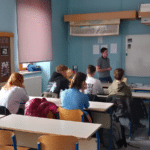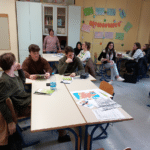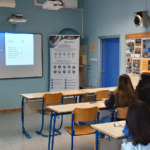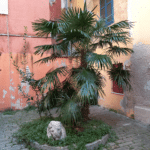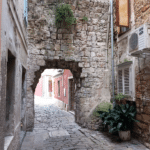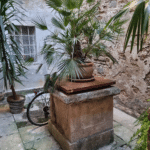Recently, researchers of the SCORE partner ZRS Mediterranean Institute for Environmental Studies have interacted multiple times with the High School Piran (Gimnazija Piran) within the SCORE project. The purpose was to raise the students’ awareness about climate change-related issues and to engage them in pilot citizen science activities.
SCORE field trip in Piran
The history and geography teachers (Sonja Bizjak and Eva Slekovec) organised the yearly field day on 1 February 2023 entitled “Ali poznam kraj svojega šolanja” (Do I know the town where I study?), for which ZRS SCORE instructed twelve students to collect data on possible location sites for Ecosystem-based Approaches (EbA) within the historic town center of Piran in Slovenia.
The SCORE ZRS researchers (Erik Kralj, Peter Kumer and Cécil Meulenberg) developed a questionnaire for field data gathering with the help of the Slovenian open-source application for online surveys (1ka). While walking through the town, the 3rd-year students were asked to locate the following elements: urban green, historic water cisterns, and (the lack of) permeable pavements. Photos, geolocation and additional information were collected through their smartphones.
Results of the geosurvey
On 20 March 2023, the results of this pilot survey were presented to the students with additional lectures by both Erik Kralj and Cécil Meulenberg on the SCORE objectives, climate change concepts, and urban adaptation processes. During the field day the students located 7 freshwater wells, 7 locations of preserved, decaying or destroyed historical pavement, and 20 locations with elements of urban green.
Some 30 pupils participated in the lively discussion that followed upon the display of the photos collected through the survey, showing that the students were rather well educated on EbAs.
A pilot citizen science activity
This geosurvey activity with students of the High School Piran was a pilot ‘citizen science’ activity, that the ZRS researchers plan to expand and repeat in the coming months. They will open it for the wider local community, as well as transfer this pilot survey to the SCORE platform, where stakeholders of the Piran Coastal City Living Lab will be able to interact.
Students, teacher of Piran high school and ZRS researcher during lectures.
Urban green in Piran with left two photos showing permeable historic pavements, and the right showing the top well of a historic (non-functional) water cistern.
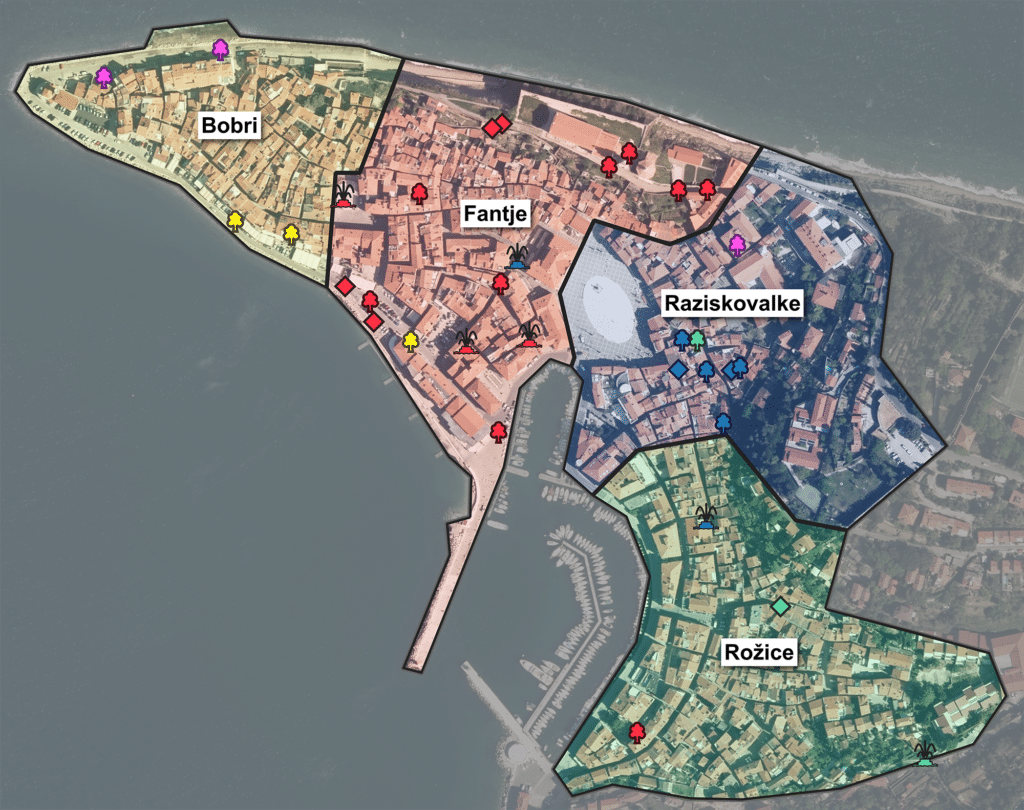
Mapping results of the field day indicating urban green, historic water cisterns, and permeable pavements, as discussed in the classroom.

